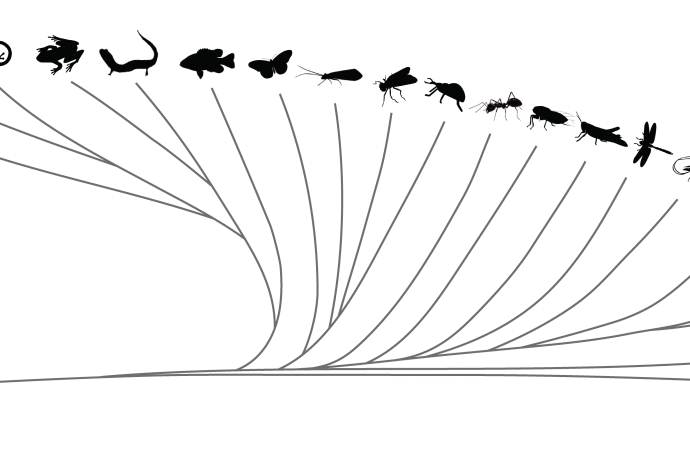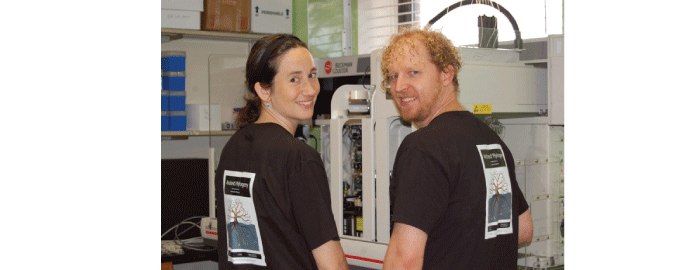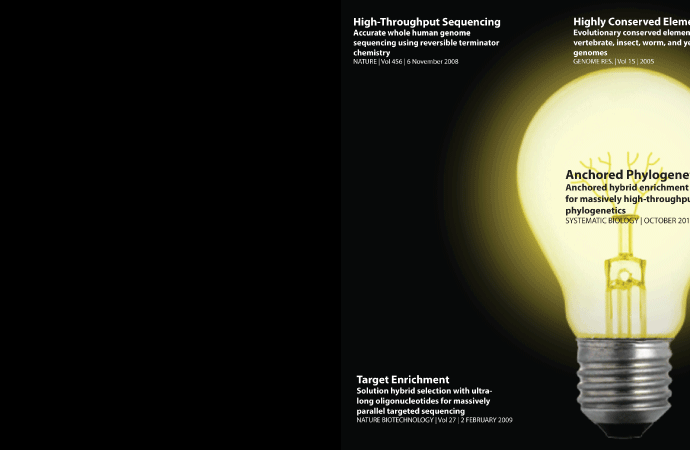
Author: ameer



High Throughput Sample Processing
FSU invests in Anchored Phylogenomics by purchasing a state-of-the-art liquid-handling robot capable of processing 25,000 samples per year.


Science Features Anchored Phylogenomics
The Lemmons and several collaborators were interviewed in a recent article discussing the impact of this method and other hybrid enrichment approaches on the field of phylogenetics.
[button url=”http://www.sciencemag.org” target=”blank”]Access The Article[/button]
The Robot Has Arrived
FSU invests in Anchored Phylogenomics by purchasing a state-of-the-art liquid-handling robot capable of processing 25,000 samples per year. Funding for the Beckman-Coulter Biomek FXp was provided by Florida State University.
Annual Reviews Article Now Online
Our paper reviewing the effect of high-throughput genomics on data collection and analysis in phylogenetics is now published online in Annual Review of Ecology, Evolution, and Systematics.
[button url=”http://anchoredphylogeny.com/publications/” size=”4″]Publications[/button]

Anchored Hybrid Enrichment for Massively High-Throughput Phylogenomics
The field of phylogenetics is on the cusp of a major revolution, enabled by new methods of data collection that leverage both genomic resources and recent advances in DNA sequencing. Previous phylogenetic work has required labor-intensive marker development coupled with single-locus polymerase chain reaction and DNA sequencing on clade-by-clade and locus-by-locus basis. Here, we present a new, cost-efficient, and rapid approach to obtaining data from hundreds of loci for potentially hundreds of individuals for deep and shallow phylogenetic studies. Specifically, we designed probes for target enrichment of >500 loci in highly conserved anchor regions of vertebrate genomes (flanked by less conserved regions) from five model species and tested enrichment efficiency in nonmodel species up to 508 million years divergent from the nearest model.
We found that hybrid enrichment using conserved probes (anchored enrichment) can recover a large number of unlinked loci that are useful at a diversity of phylogenetic timescales. This new approach has the potential not only to expedite resolution of deep-scale portions of the Tree of Life but also to greatly accelerate resolution of the large number of shallow clades that remain unresolved. The combination of low cost (∼1% of the cost of traditional Sanger sequencing and ∼3.5% of the cost of high-throughput amplicon sequencing for projects on the scale of 500 loci × 100 individuals) and rapid data collection (∼2 weeks of laboratory time) are expected to make this approach tractable even for researchers working on systems with limited or nonexistent genomic resources.
2012 Lemmon, A. R., S. Emme and E. C. Lemmon
SYSTEMATIC BIOLOGY. 61: 721-744. Show Details
3999 Downloads